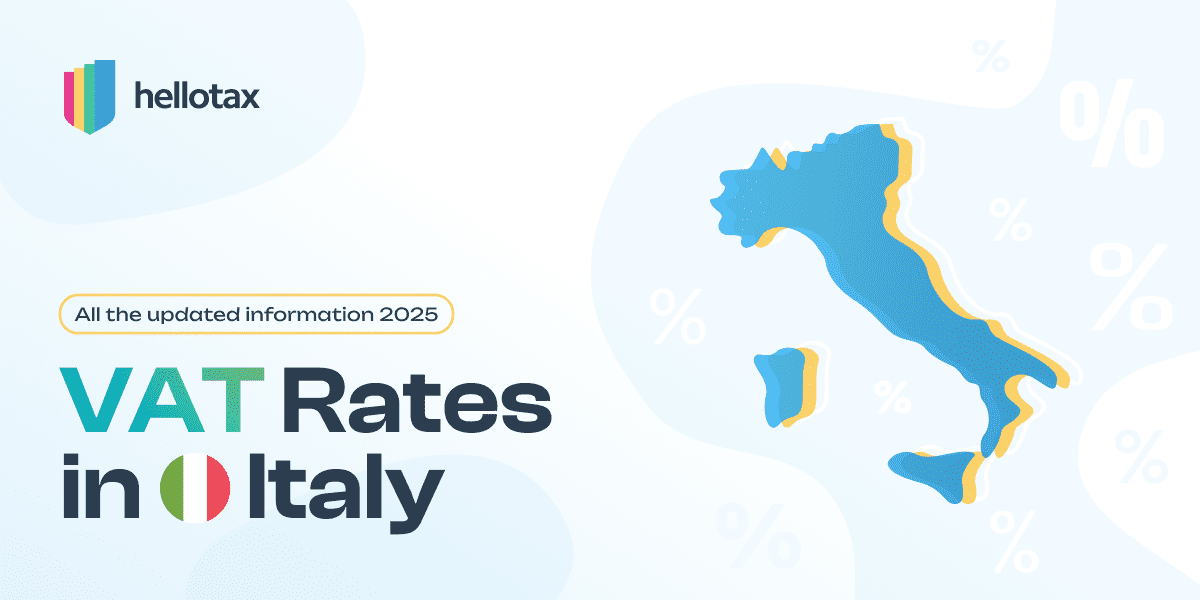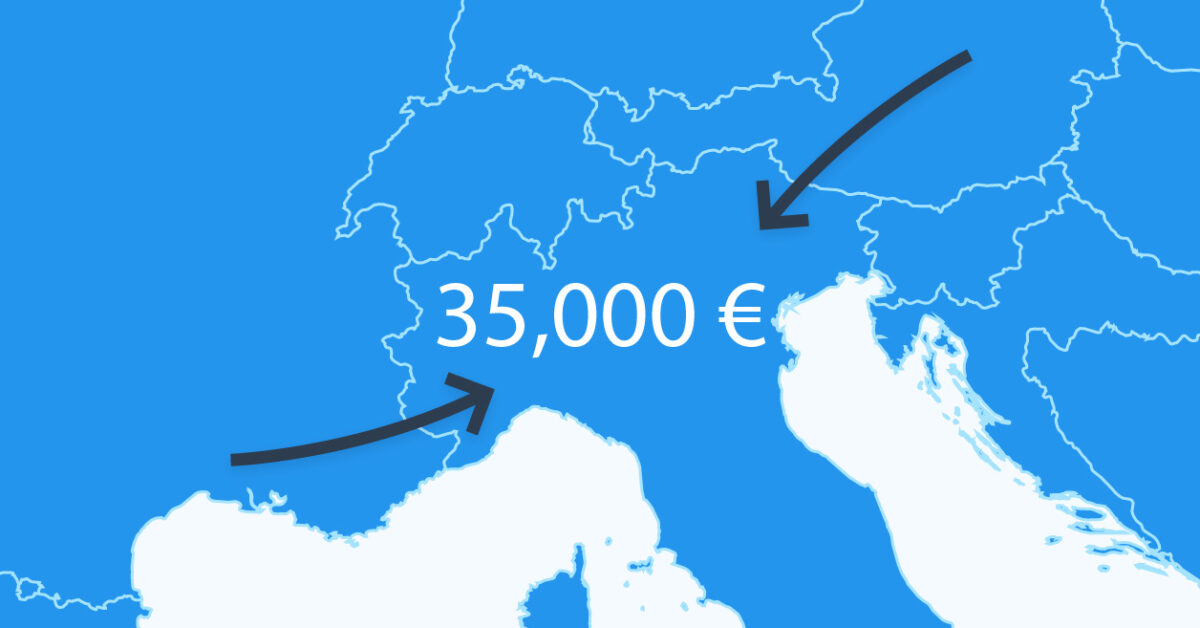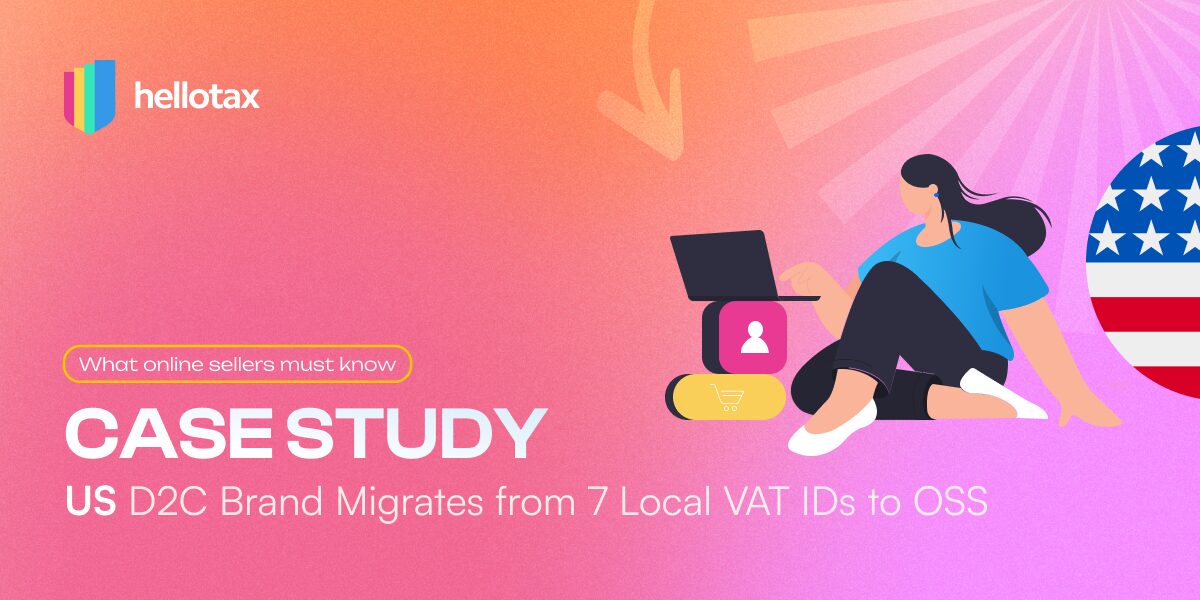For a more recent update on VAT in Italy, please, check here.
Antonia Klatt
Last Updated on 29 January 2020In this article we speak about tax and VAT changes that were recently introduced in Italy. So sellers with an Italian VAT ID can take required action in time and penalties can be avoided before they arise. Here you have the expected VAT Update for Italy in 2021.
Note: This article has been updated to reflect the current status of VAT regulations in Italy as of June 2025. Some of the originally planned changes (such as VAT rate increases) were never enacted.

VAT rates in Italy will rise in 2021/2022 – never implemented
Although VAT rate hikes were announced in earlier Italian budgets, they were never implemented. As of 2025, the standard VAT rate in Italy remains 22%, with reduced rates of 10% and 5% still in place.
Italy: Introduction of Digital Service Tax
In the course of the introduction of the latest Italian Budget Law, a Digital Service Tax was introduced as well.
This is probably one of the more far-reaching tax changes. The objective of the tax on digital services is to tax the revenue generated during a year by digital services offered to users who are resident in Italy. Users can be identified by their IP addresses.
The digital service tax applies for the following services, the tax rate is 3 %.
Taxable Digital Services
There are several digital services which are taxable with this new digital tax. In general, a distinction is made between 3 different categories:
- Category A: The placing of advertising on a digital interface aimed at the users of that interface.
- Category B: The provision to users of a multi-sided digital interface that allows the users to find and interact with each other (and that may also facilitate the provision of underlying supplies of goods or services directly between users)
- Category C: The sale of data collected from users and generated by the use of digital interfaces
Taxable persons
The digital services tax applies to businesses that had total revenues of € 750 million or more in the year before the relevant calendar year or total revenues of € 5.5 million or more derived from digital services supplied in Italy.
Information about revenue from taxable digital services has to be recorded on a monthly basis to show whether the revenue thresholds were reached or not.
Note: As of 2025, Italy’s DST is still in effect, but under review as part of the global effort to harmonize digital taxation through OECD and EU frameworks. Online sellers should monitor upcoming changes to avoid overlapping tax obligations.

Book a free consultation
Our VAT experts are happy to help you. Book a free consultation today!
Clarifications for certain VAT regulations
With the introduction of the Quick Fixes on 1 January 2020, the starting gun for various tax and VAT changes in Europe has been fired.
As some of the new regulations – as well as previous one – were not completely clear for many sellers (and even the legal side was partially not clearly clarified), the government and the tax authorities have provided further information on the following topics:
- VAT Deregistration
- VAT Grouping Regime
- Retail Export Scheme
- VAT Treatment of Vouchers
Clarification 1: VAT Deregistration
The Italian tax authorities have recently clarified that a taxable person may deregister and cancel his VAT identification number only if all obligations arising from his sales and purchases have been duly fulfilled and concluded.
Further, online marketplaces merely providing an introduction between third-party sellers and consumers are not obliged to follow the new VAT transaction reporting requirements. This includes e-commerce software providers for the creation and management of webstores.
These obligations applied until the EU-wide marketplace deemed supplier rules took effect on 1 July 2021. Since then, online marketplaces facilitating cross-border B2C sales are considered deemed suppliers and are responsible for VAT collection under the OSS system.
Clarification 2: VAT Grouping Regime
It was further clarified that in the frame of a VAT grouping regime, despite the respective representative has the largest responsibility, all members are jointly and severally liable for the VAT debts, penalties and interests which result from an audit or assessment of the Italian tax authorities.
Clarification 3: Retail Export Scheme
The next clarification concerns the retail export scheme. Travellers who are not resident in the EU and are not taxable persons may avoid the remittance of VAT when:
- Goods will be transported to a third country in the personal luggage;
- The goods are for personal use;
- The total amount of the purchased goods is higher than 154,94 EUR.
Clarification 4: VAT Treatment of Vouchers
The tax authorities have recently clarified that the classification of a voucher as a single-purpose voucher or a multi-purpose voucher depends on whether or not the applicable VAT treatment of the goods or services to which the voucher relates is already known at the time of issue. This may include the place and nature of the service, the quality and quantity of the goods or services supplied, or the used VAT rates.
Source: www.vatupdate.com
To provide the best overview possible, we will present current and future changes in various European countries. This article is about VAT changes in Italy, further country-specific VAT updates, like in Austria, can be found in our blog in the near future.




